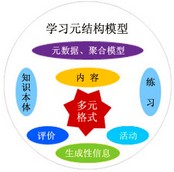-
学习元平台最近来访的去重处理
普通类 -
- 支持
- 批判
- 提问
- 解释
- 补充
- 删除
-
-
问题:

读取数据库的最近来访好友列表时,由于xiaojing这个用户在不同的时间段访问了我四次,那么数据库就把这四条记录都读出来了

怎么能进行去重处理,只显示名称不同的最近来访者呢?
(说明: 此表为user_visitresource_log 表,resourceType=5代表访问的是个人空间,userId是来访者的id,resourceId是被访者的id,那么我要查询我空间的最近来访者的基本限定条件是resourceType=5 and userId!=resourceId and resourceId=67000 )
-
one:group by
我们很容易的就想到了用group by 来分组不就解决了?select * from user_visitresource_log where resourceType=5 and userId!=resourceId and resourceId=67000 group by userId问题:group by 会默认的按表的时间先后顺序读取记录进行分组。group by 后得到的记录不是最新来访的记录,一旦读出了这个记录后就不会再变化。所以不可以。-
two:在group by 之前排序
那我们在group by 之前先排序不就行了?即select * from user_visitresource_log where resourceType=5 and userId!=resourceId and resourceId=67000 order by visitTime desc group by userId问题:语法问题,order by 必须在group by 后面。所以也不可以。-
three:采用自查询
能不能采用自查询的方式来实现?用 user_visitresource_log uv1,user_visitresource_log uv2来实现,用uv2来限定条件,uv1排序来实现。代码如下:select uv1.id, uv1.userId,uv1.resourceType,uv1.resourceId,uv1.visitTime from user_visitresource_log uv1,user_visitresource_log uv2 where uv1.id=uv2.id and uv2.resourceType=5 and uv2.userId!=uv2.resourceId and uv2.resourceId=67000 order by uv2.visitTime desc group by uv1.resourceId即先用uv2进行order by visitTime desc的排序,再用uv1表进行 group by resourceId,但很遗憾,这也是不可以的。-
four:采用where...in
然后想到采用 where......in 的方式可能可以实现select * from user_visitresource_log where id in(select id from user_visitresource_log where resourceType=5 and userId!=resourceId and resourceId=67000 order by visitTime desc ) group by userId用这种方法可以实现先order by visitTime desc,再进行 group by resourceId的排序了。貌似是可以了。但是这种方法也是不可以的。因为where......in 在读取记录的时候也是按照id的先后顺序来读取的,这样还是得不到最新访问空间的记录。其效果和group by 差不多。-
five:采用group by 配合聚合函数
然后想到group by 一般是需要配合聚合函数来使用的。比如sum() max() min()等等。用这种方法试了一下select *,MAX(visitTime) from user_visitresource_log where resourceType=5 and userId!=resourceId and resourceId=67000 group by userId通过这种方法我们得到了自己想要的结果,但是也出现了我们不想要的结果。 虽然sql语句能查询出来了,但是hql语句是面向对象的,所以还是不可以。
虽然sql语句能查询出来了,但是hql语句是面向对象的,所以还是不可以。-
six:采用distinct
然后突然想到使用distinct不就可以了,把相同的都排除出去。貌似是可以的,但还是行不通。因为每条记录都是不一样的,至少每条的id和visitTime是不一样的。如果直接用 select distinct userId ...则只能取出不同的userId来。实现不了我们的目的。-
seven:采用子查询
最后采用子查询的方式,实现了查询功能。代码:select * from ( select * from user_visitresource_log where resourceType=5 and and userId!=resourceId and resourceId=67000 order by visitTime desc ) as vu group by userId order by visitTime desc这样就可以查询出最近访问我空间的来访者了。结果是完全符合。但是,hql不支持from子查询。所以如果从这个sql语句转化为hql语句的话,还是不可以。到现在,从sql语法里面依然没有找到更好的解决办法。如果使用sql语法,其实这种查询用 group by配合聚合函数 或者使用子查询很容易就实现了我们想要的功能。但是这两种方法对hql并不感冒。 -
-
解决办法
解决办法还是有的:
1. 对于只查询出前几个的最近来访者,在页面里用程序来进行判断。但无法扩展,要读取所有的最近来访者时,不容易实现。
2. 另写一个程序,当用户访问我的空间时,不再重复记录,而是只修改来访时间。但学习元平台注重的是过程性信息,而且另写程序会使得程序难读。
3. 使用sql的本地查询。
-
最终解决办法
使用本地sql查询
Hibernate 对本地SQL查询提供了内置的支持。Session的createSQLQuery()方法返回一个SQLQuery对象,SQLQuery接口继承了Query接口。SQLQuery接口的addEntity()方法能把查询结果集中的关系数据映射为对象。
程序如下:

sqlVisitorsList方法为:
\src\hep\persist.UserDAO.java

这样就可以实现用SQL语句来查询数据库,并返回对象类型的数据。
- 标签:
- 查询
- 方法
- resourceid
- select
- 采用
- 记录
- 实现
- userid
- group
- sql



学习元评论 (0条)
聪明如你,不妨在这 发表你的看法与心得 ~